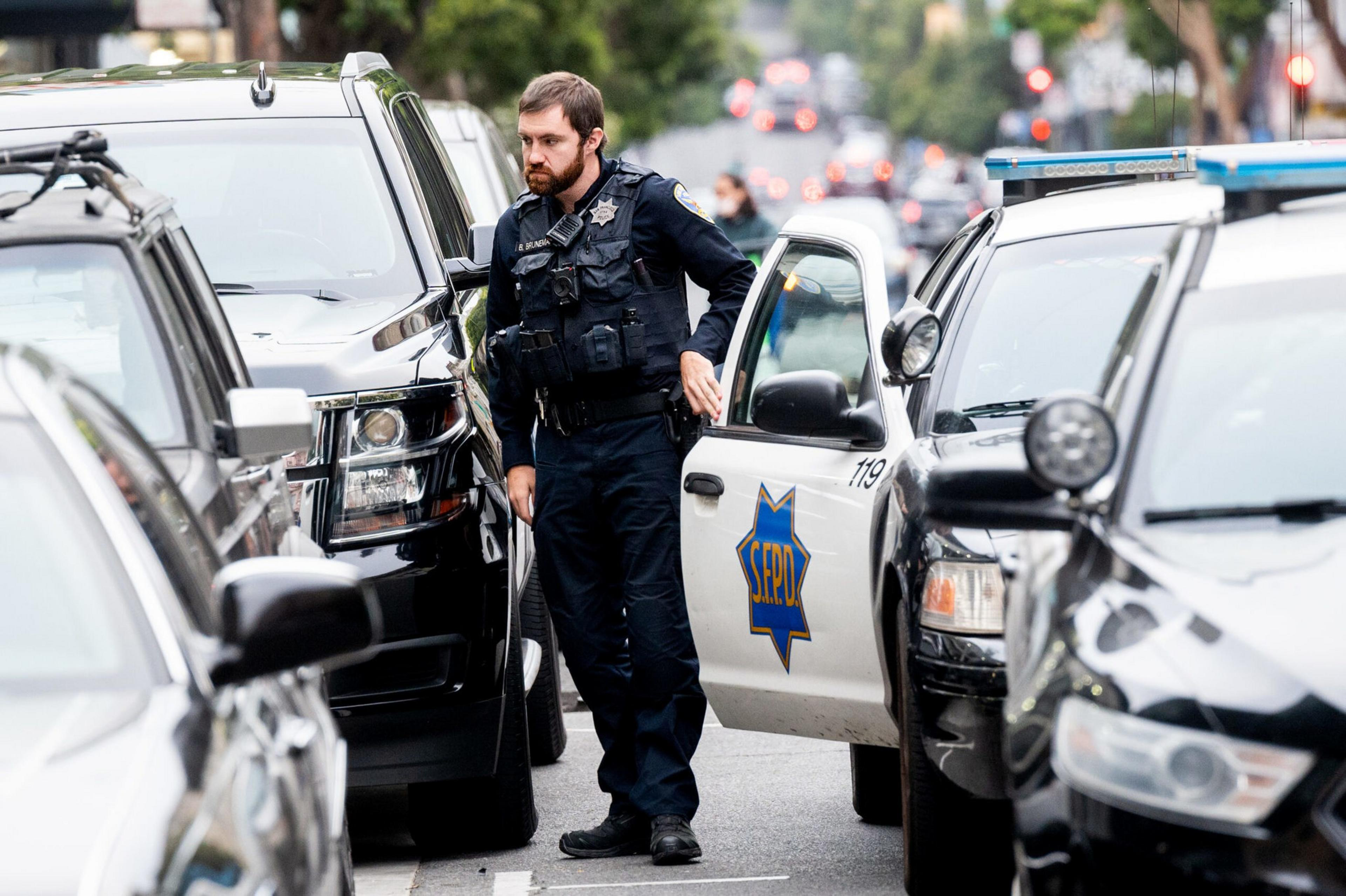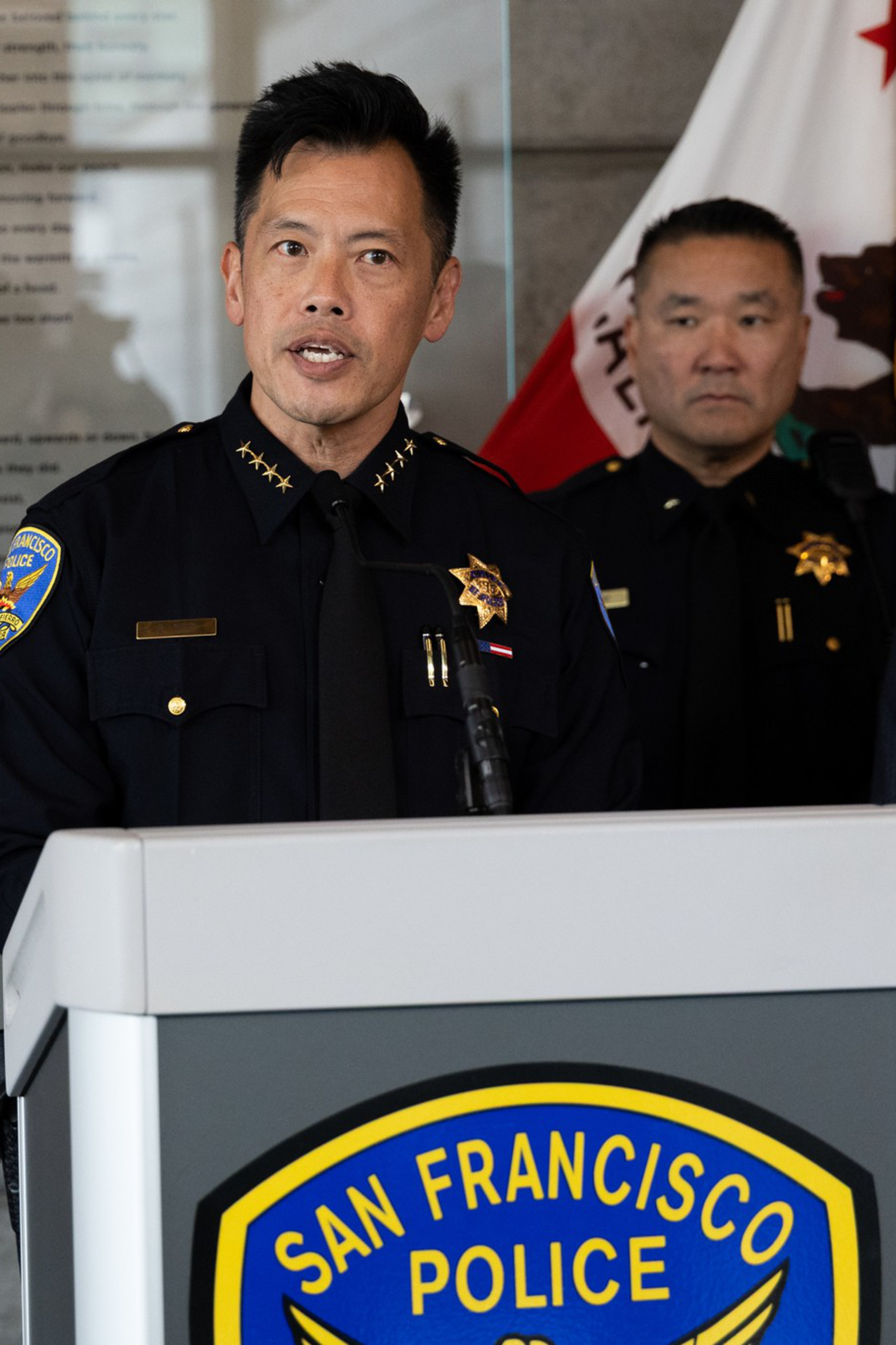What are the qualifications for San Francisco’s next chief of police? Integrity, experience, a clear strategy to reduce crime?
Well, according to a survey intended to gauge what the public wants in a new chief, at least some San Franciscans have other, often contradictory, priorities: “Get rid of the Nazis,” “understanding of the concerns of Asian communities,” and an end to the “DEI, BLM, Reform nonsense.”
One person repeatedly requested a shorter survey.
The results — obtained by The Standard and set to be presented to the San Francisco Police Commission on Wednesday — amount to a kind of public audition for one of law enforcement’s most challenging jobs.
Think “American Idol,” but with guns.
The position has been empty since May, when Chief Bill Scott resigned after eight years to take a new job as chief of police for the Los Angeles County Metropolitan Transportation Agency’s yet-to-be-formed force. Since then, Mayor Daniel Lurie’s public safety czar, Paul Yep, has been serving as interim chief. Despite widespread speculation inside the department that Yep was in line for the permanent job, the former SFPD commander said last month that he will not seek the position.
The Police Commission, which will recommend three finalists for Lurie to choose from, collected community feedback with help from Ralph Andersen & Associates, the firm hired to conduct the chief search. The candidate list hasn’t been released, but some residents used the survey to suggest their favorites, including Tom Maguire, commander of the SFPD Investigations Bureau; Chris Canning, captain of the police academy; and Amy Hurwitz, captain of Southern Station.
The 227 respondents each attended one of nine community meetings between Aug. 15 and Sept. 24, where they were asked to rank their preferred qualities in a chief.
“Integrity” topped the list, followed closely by “strong leadership” and “accountability.” On the lower end: “diversity,” “political savvy,” and “reformer.”
“Honestly, just get the best person for the job. Politics should have nothing to do with it,” one respondent wrote. “Justice takes place in the court system, not in law enforcement.”
The survey was offered in English, Spanish, Chinese, Russian, Arabic, Vietnamese, and Filipino, and nearly 95% of respondents were city residents.
According to the responses, frustration runs high over open-air drug markets, fentanyl deaths, homelessness encampments, and what many described as declining order in public spaces — despite data indicating that most types of crime are down. Some said they avoid the Tenderloin or Hunters Point due to safety concerns. Those neighborhoods have “had systemic crime issues my whole life,” one respondent wrote. “You can reduce the cycle of violence with strong enforcement and prosecution.”
Another lamented the city’s tolerance for disorder compared to tougher approaches elsewhere: “We have a long way to go to NYC under Bloomberg, which is a minimum standard in a much more intense metro.”

Residents said they want a chief who can do it all: rebuild morale among officers while regaining public confidence; keep reforms that work while fixing those that don’t; and hold officers accountable without paralyzing the department.
Local ties matter too. Many said they want someone who understands San Francisco’s neighborhoods and police culture. Two of the past three chiefs were veterans of the Los Angeles Police Department.
Top priorities include reviewing department programs, improving training, connecting with rank-and-file officers, and partnering with community groups.
Asked about safety perception, the responses were split: 26% said San Francisco feels about as safe as other cities, 18% said less safe, and 18% said much less safe. Only 6% said it feels much safer.
And then there were the pragmatists: “Pick anybody — they’re going to have a hard time anyway,” one person wrote. “I wouldn’t want that job.”

